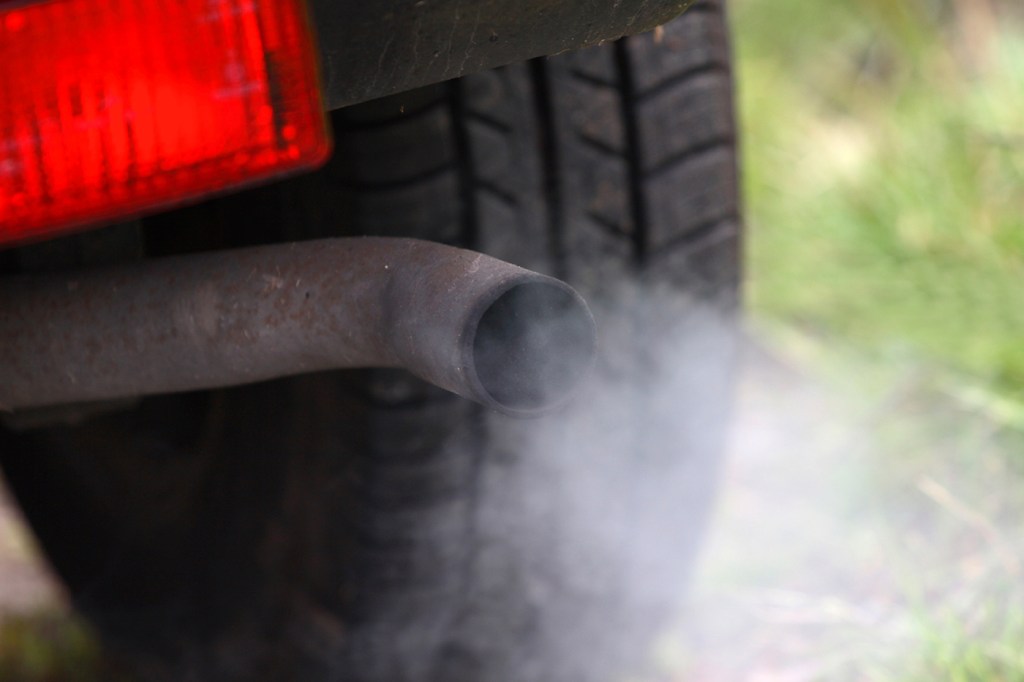Faculty experts weigh in on Volkswagen scandal

A week ago, Volkswagen fessed up: It had installed software known as “defeat devices” in 11 million of its “clean diesel” cars to kick on emissions controls during testing and switch them off once the cars hit the road, resulting in improved mileage. That meant the cars met Environmental Protection Agency regulations during the tests but were releasing between 10 and 40 times the legal limit of noxious pollutants when on the road.
The scandal reverberates across disciplines, among them law, business, the environment, public health, and technology. We asked Northeastern experts in these areas to provide insights into the ramifications.
Yiannis Levendis, Distinguished Professor of Mechanical and Industrial Engineering who specializes in containment of combustion-generated pollution
How will these cars, with their deceptive emissions controls, affect the environment?
“Every time we pollute the air, whether through car emissions or factory exhaust, the environment is affected negatively, just as every time we smoke or eat unhealthy foods our body is affected negatively. In the VW case, how negatively depends on the number of cars on the road—VW reported that 11 million cars of its group brands are affected worldwide; the total miles driven; the location of the cars; and so on.
“In the United States there are a limited number of VW group brand diesel cars—a little under 0.5 million. So the environmental effect, while negative, will be limited in comparison to, say, in Europe, where every other car is a light-duty diesel—excluding the heavy-duty diesel vehicles such as buses and trucks. If VW took the same approach to emissions tests in Europe as it did here, the impact of those cars on air pollution there must have been severe.”
Helen H. Suh, professor in the Bouvé College of Health Sciences’ Department of Health Sciences who specializes in air-pollution and health
How will these cars affect our health?
“The VW scandal has many implications for health. The ‘defeat devices’ result in the VW ‘clean diesel’ cars emitting more pollutants, nitrogen oxides in particular, with emissions in excess of that allowed by the Clean Air Act. Higher NOx emissions can contribute to higher concentrations of and exposures to additional pollutants, including ground-level ozone and fine particles. Exposures to NOx, ozone, and fine particles have been linked to a variety of adverse health outcomes, including increased asthma attacks, respiratory symptoms, and hospital admissions and deaths related to respiratory or cardiac conditions. The VW scandal may particularly affect populations living near roadways or in communities with a lot of traffic.”
Bruce Clark, associate professor and group coordinator of the Marketing Group in the D’Amore-McKim School of Business
What effect will the scandal have on the VW brand?
“This is bad news for the VW brand. VW’s product push in ‘clean diesel’ was its attempt to address environmental concerns of consumers, as opposed to introducing electric or hybrid vehicles, for example. German engineering, clean diesel, and fun to drive have been key brand messages for VW over the past few years. Now we learn that Volkswagen’s engineering prowess was used to deceive consumers and regulators about these diesel engines. It’s especially damaging because it appears clearly intentional: This was not an accident or error, it was systematic deception. That’s going to make it harder for VW to recover, and I think may even tarnish the reputation of diesel vehicles generally.”
Christo Wilson, assistant professor in the College of Computer and Information Science who specializes in personalization algorithms
How do the “defeat devices” work, and why were testers not able to detect them? What were they originally developed for?
“The ‘defeat device’ is simply some computer code that VW engineers hid among the millions of lines of code that run every aspect of the modern automobile. It works by detecting when the car’s emissions are being tested, and then altering the performance of the engine to drastically cut emissions.
“There are several reasons nobody detected the ‘defeat device.’ First, car companies are under no obligation to release the source code to vehicles or to conduct independent code audits. In fact, car companies have been extremely vocal about using copyright laws and the Digital Millennium Copyright Act to prevent third parties from auditing their code. Second, the Environmental Protection Agency and National Highway Traffic Safety Administration are understaffed and ill equipped to manage the increasing complexity and diversity of automobiles.
“Cheating was almost certainly the explicit goal of the ‘defeat devices.’ Consider the fact that VW managed to produce 11 million cars that violated emissions standards 99.99 percent of the time. The only time when the cars complied with emissions standards was the 0.01 percent of the time when they were being emissions tested. There’s no way this behavior arose from an unexpected software bug; this has all the hallmarks of intentional fraud.”
Andrea M. Matwyshyn, professor in the School of Law who specializes in technology innovation and its legal implications
What recourse do owners of these VW cars have, and what are the legal issues facing VW?
“According to press reports, at least 34 class-action suits have been filed against VW. The company also faces continuing investigation by the Environmental Protection Agency, a Department of Justice inquiry, and possible inquiries from other agencies such as the Federal Trade Commission and the Security and Exchange Commission.
“This VW situation reminds us that cars are now functionally computers with wheels, running millions of lines of code. Independent verification of the integrity and functionality of the code in these cars has become progressively more important as a consumer-safety issue.”





